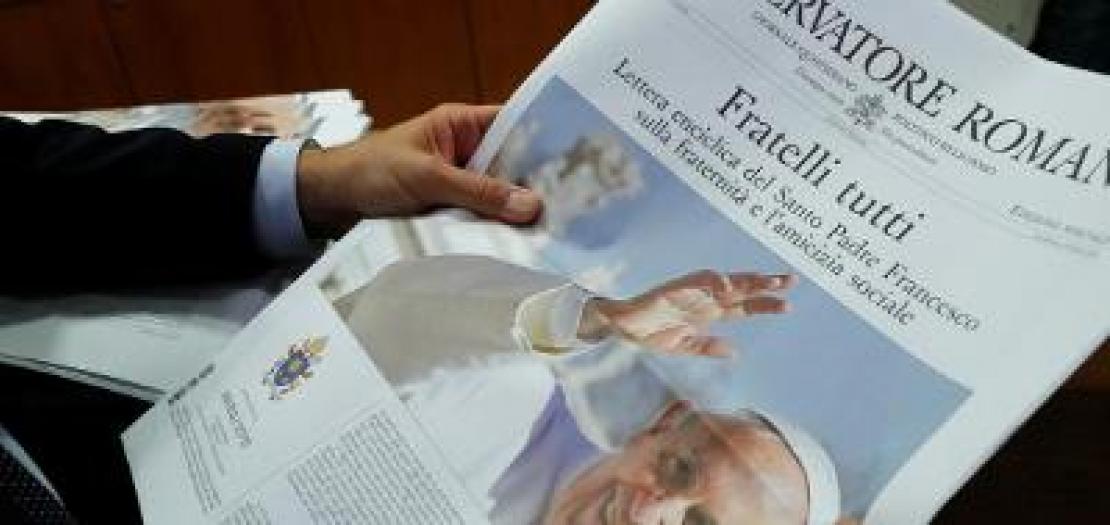Issued by the Catholic Center for Studies and Media - Jordan. Editor-in-chief Fr. Rif'at Bader - موقع أبونا abouna.org
WE ARE ALL BROTHERS
Some 800 years ago, Saint Francis Assisi launched this slogan, “We are all brothers and sisters”. This statement does not only apply to inter-human relations but also to nature and all living creatures that he loved as well. After eight centuries, Pope Francis signed his new Encyclical "Fratelli tutti" (We Are All Brothers) in order to restore to this slogan its splendor and presence in today's multi-ethnic world, multi-national and multi-religions world, as well to all other aspects of plurality and diversity.
The new encyclical is in line with the spirit of Abu Dhabi document which is known as "The Document on Human Fraternity for World Peace and Living Together” signed by His Holiness Pope Francis and Sheikh of Al-Azhar in the UAE capital in February 2019. It is also a manifestation of the fraternal ties between the Holy See and Ecumenical Patriarch of Constantinople of the Eastern Orthodox Church Bartholomew I in Istanbul as well as the Holy See’s official and diplomatic relations with countries and international organizations. It is also important to be remembered that it coincides with the emergence of the pandemic which turned the world into one family living through the same circumstances that swings between pain and hope.
The encyclical calls for respecting the sanctity of life from the moment of conception to the moment natural dearth. It calls for stopping wars and promoting the values of forgiveness and peace, so that human beings can "jointly" confront the mistakes that threaten the global family, such as the current virus, Covid-19, as well as all other social viruses including climate change, unemployment, poverty, and the issues relevant to refugees and the forcibly displaced.
It also calls for the restoration of politics to its main duty, namely in the service of the people and of the public good. The message distinguishes between the popular and populist movements where the former is concerned with the opinion of the people and the influence of the public opinion, while the latter ignores the existence of the people in order to serve personal interests. Furthermore, it calls on politicians to find solutions to all those who attack basic human rights such as social exclusion, human trafficking, sexual exploitation, terrorism, and organized crime.
As for the role of religions, they are intended to serve brotherhood globally. There is no terrorism in religion (which has been subject to wrong interpretations of texts), and it is of course necessary to preserve religious freedom for all members of society without exception. Among the distinguishing features of this encyclical is that it calls for abolishing the death penalty which was previously rejected with some exceptions. But the Church nowadays favors abolishing it completely because there are more effective and humane punitive methods.







